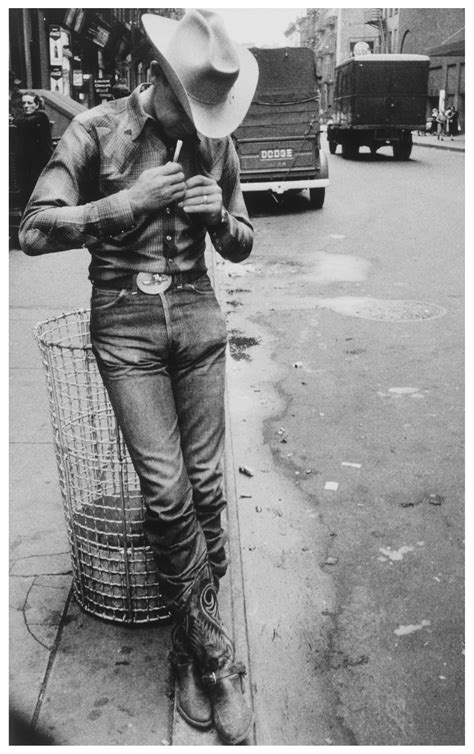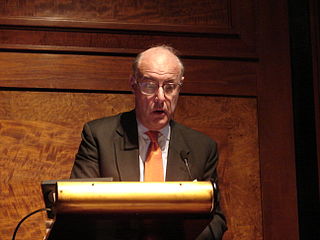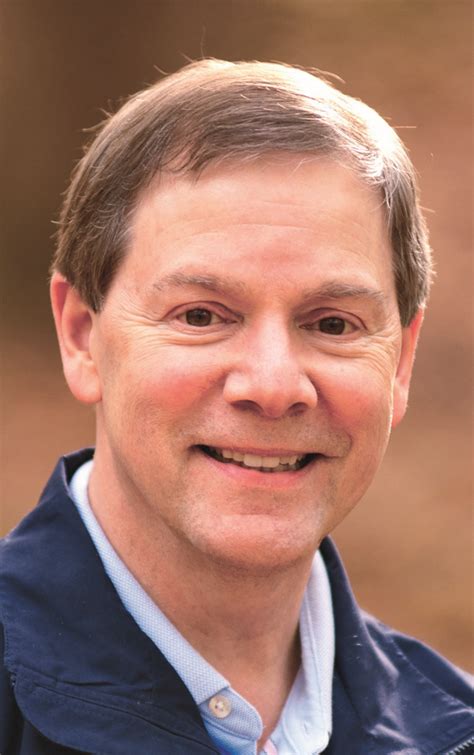Top 1200 Often Can Quotes & Sayings - Page 13
Explore popular Often Can quotes.
Last updated on December 21, 2024.
I often notice how students can gain the capacity to use certain critical methodologies through engaging with very different texts - how a graphic novel about gentrification and an anthology about Hurricane Katrina and a journalistic account of war profiteering might all lead to very similar classroom conversations and critical engagement. I'm particularly interested in this when teaching law students who often resist reading interdisciplinary materials or materials they interpret as too theoretical.
For most problems found in mathematics textbooks, mathematical reasoning is quite useful. But how often do people find textbook problems in real life? At work or in daily life, factors other than strict reasoning are often more important. Sometimes intuition and instinct provide better guides; sometimes computer simulations are more convenient or more reliable; sometimes rules of thumb or back-of-the-envelope estimates are all that is needed.
I lapsed into my pathetic cut-off period. Often with humans, both good and bad, my senses simply shut off, they get tired, I give up. I am polite. I nod. I pretend to understand because I don’t want anybody to be hurt. That is the one weakness that has lead me into the most trouble. Trying to be kind to others I often get my soul shredded into a kind of spiritual pasta. No matter. My brain shuts off. I listen. I respond. And they are too dumb to know that I am not there.
The fetish of the great university, of expensive colleges for young women, is too often simply a fetish. It is not based on a genuine desire for learning. Education today need not be sought at any great distance. It is largely compounded of two things, of a certain snobbishness on the part of parents, and of escape from home on the part of youth. And to those who must earn quickly it is often sheer waste of time. Very few colleges prepare their students for any special work.
Aided and abetted by corrupt analysts, patients who have nothing better to do with their lives often use the psychoanalytic situation to transform insignificant childhood hurts into private shrines at which they worship unceasingly the enormity of the offenses committed against them. This solution is immensely flattering to the patients -- as are all forms of unmerited self-aggrandizement; it is immensely profitable for the analysts -- as are all forms pandering to people's vanity; and it is often immensely unpleasant for nearly everyone else in the patient's life.
It is almost impossible to translate verbally and well at the same time; for the Latin (a most severe and compendious language) often expresses that in one word which either the barbarity or the narrowness of modern tongues cannot supply in more. ...But since every language is so full of its own proprieties that what is beautiful in one is often barbarous, nay, sometimes nonsense, in another, it would be unreasonable to limit a translator to the narrow compass of his author's words; it is enough if he choose out some expression which does not vitiate the sense.
I feel like a lot of people talk about in rom-coms, there's the female best friend. There's all those archetypes in rom-coms. But even among a movie about man-children hanging out, there is always the one who's often the fat one, often the one with the beard, who is like the man-childest of them all. He's the one that eventually meets the fat girl or the quirky girl of the girl group of friends and really hits it off.
The human race may be compared to a writer. At the outset a writer has often only a vague general notion of the plan of his work, and of the thought he intends to elaborate. As he proceeds, penetrating his material, laboring to express himself fitly, he lays a firmer grasp on his thought; he finds himself. So the human race is writing its story, finding itself, discovering its own underlying purpose, revising, recasting a tale pathetic often, yet none the less sublime.
When the psychiatrist approves of a person's actions, he judges that person to have acted with "free choice"; when he disapproves,he judges him to have acted without "free choice." It is small wonder that people find "free choice" a confusing idea: "free choice" appears to refer to what the person being judged (often called the "patient") does, whereas it is actually what the person making the judgment (often a psychiatrist or other mental health worker) thinks.
And often the worst thing wasn't the victims--they were dead, after all, and beyond any more pain. The worst thing was those who loved them and survived them. Often the walking dead from now on, shell-shocked, hearts ruptured, stumbling through the remainder of their lives without anything left inside of them but blood and organs, impervious to pain, having learned nothing except that the worst things did, in fact, sometimes happen. (Mystic River)
As the great naturalist Charles Darwin saw clearly, individual and collective interests often coincide, as in the invisible hand narrative. But he also saw that in many other cases, interests at the two levels are squarely in conflict, and that in those cases, individual interests generally trump. That simple observation suggests that market failure is often the result not of insufficient competition (the traditional charge from social critics on the Left), but of the very logic of competition itself.
Complexity has and will maintain a strong fascination for many people. It is true that we live in a complex world and strive to solve inherently complex problems, which often do require complex mechanisms. However, this should not diminish our desire for elegant solutions, which convince by their clarity and effectiveness. Simple, elegant solutions are more effective, but they are harder to find than complex ones, and they require more time, which we too often believe to be unaffordable
It often seems easier not to move on; even the muck and mire in which we're stuck seems less fearful and less challenging than the unknown path ahead. Some people use faith as a reason to remain stuck. They often say, "I have faith, so I'm waiting." But faith is not complacent; faith is action. You don't have faith and wait. When you have faith, you move. Complacency actually shows lack of faith. When it's time to move in a new direction in order to progress, the right people will come to us.
I'll just talk and talk for an hour, an hour and half, until funny things come out of my mouth - often things that I don't think will be funny, often things that I just thought were sentences, turn out to be funny, because they're the sentences of an idiot. There's level of self-awareness that develops, and I write down things that were funny, usually when I'm on stage, and that becomes the show.
Magicians and scientists are, on the face of it, poles apart. Certainly, a group of people who often dress strangely, live in a world of their own, speak a specialized language and frequently make statements that appear to be in flagrant breach of common sense have nothing in common with a group of people who often dress strangely, speak a specialized language, live in ... er.
When something goes wrong in our lives we often ask ourselves "Who was present?" and if there was ever a singular person that was present in whatever the event was when something changed our lives. If we can't get beyond that event, we become obsessed with it or it changed our life in a way that we can't make sense of. We often seek out that person because that was the last time our lives made sense.
If you suddenly and unexpectedly feel joy, don't hesitate. Give in to it. There are plenty of lives and whole towns destroyed or about to be. We are not wise, and not very often kind. And much can never be redeemed. Still life has some possibility left. Perhaps this is its way of fighting back, that sometimes something happened better than all the riches or power in the world. It could be anything, but very likely you notice it in the instant when love begins. Anyway, that's often the case. Anyway, whatever it is, don't be afraid of its plenty. Joy is not made to be a crumb.
The relationships we have with our doctors are often the most trusted relationships of our lives. Our doctors tell us hard truths that others will not. We often tell our doctors what we will not tell others. We trust our doctors to give us the good, the bad and the ugly about our health so that each of us can make an informed decision.
How often do our heroes stand still? It's hard to imagine Spock and Kirk landing on a planet and just relaxing for a month or two. Just hanging out has nothing to do with boldly going where no one has gone before. What makes us different from every other creature is that we go places, places we've not gone before. We do it willingly, and often. What makes our work and our life interesting is discovery, surprise, and the risk of exploration.
Royal relationships across the generations have often been strained and distant, rather than close and affectionate. Most eldest sons, interminably waiting to become king, have not been on the best of terms with the sovereign to whose death they look forward with a debilitating combination of guilt-ridden anxiety and eager anticipation. And younger sons (and daughters, too) have often found their lives empty of purpose: cut off by their royal statius, but unable to find anything rewarding with which to fill the time.
God is in the business of strategically positioning us in the right place at the right time. A sense of destiny is our birthright as followers of Christ. God is awfully good at getting us where He wants us to go. But here’s the catch: The right place often seems like the wrong place, and the right time often seems like the wrong time.
Heterosexual women ask questions that are a lot to do with what I did to my body and what that was like to lose all that weight and so on. To me it just reveals that that's a preoccupation of theirs. Or gay women have been really keen on knowing how I felt about playing a gay character and have often wanted to talk about their own experiences with children. Straight men have often shown some sense of relief, that they get to experience the philanderer as a woman and not have to judge her in the same way. That's fascinating to me.
Raymond Hendler exhibited a group of abstract paintings that displayed rare high spirits. Using a great deal of fresh white, Hendler devised extremely simple symbols which he dispersed felicitously on his shining grounds. These bright, often linear hieroglyphs serve both as pictorial animators-they often flow in winding patterns or like fluent handwriting-and as references to the plentitude of the artist's existence. Gardens and sky and human joy are read in these exceedingly compressed forms.
Too often in the past, we have thought of the artist as an idler and dilettante and of the lover of arts as somehow sissy and effete. We have done both an injustice. The life of the artist is, in relation to his work, stern and lonely. He has labored hard, often amid deprivation, to perfect his skill. He has turned aside from quick success in order to strip his vision of everything secondary or cheapening. His working life is marked by intense application and intense discipline.
Belonging is the innate human desire to be part of something larger than us. Because this yearning is so primal, we often try to acquire it by fitting in and by seeking approval, which are not only hollow substitutes for belonging, but often barriers to it. Because true belonging only happens when we present our authentic, imperfect selves to the world, our sense of belonging can never be greater than our level of self-acceptance.
I found a Bill Evans record in the bookcase and was listening to it while drying my hair when I realized that it was the record I had played in Naoko's room on the night of her birthday, the night she cried and I took her in my arms. That had happened only six months earlier, but it felt like something from a much remoter past. Maybe it felt that way because I had thought about it so often-too often, to the point where it had distorted my sense of time.
Children in home-school conflict situations often receive a double message from their parents: "The school is the hope for your future, listen, be good and learn" and "the school is your enemy. . . ." Children who receive the "school is the enemy" message often go after the enemy--act up, undermine the teacher, undermine the school program, or otherwise exercise their veto power.
I recommend allowing others the opportunity to fully express themselves before turning our attention to solutions or requests for relief. When we proceed too quickly to what people might be requesting, we may not convey our genuine interest in their feelings and needs; instead, they may get the impression that we're in a hurry to either be free of them or to fix their problem. Furthermore, an initial message is often like the tip of an iceberg; it may be followed by yet unexpressed, but related - and often more powerful - feelings.
Michelle Obama kind of has two identities. In private, she is actually often much more vehement than her husband about Republican opposition. It was very hard to get sources to put it on the record, but they would describe the way she talked about Republicans and opposition in private. And, you know, her remarks were scorching. The level of heat that she can give off in these conversations is often much greater than what Barack Obama does.
Incapacity to appreciate certain types of beauty may be the condition sine qua non for the appreciation of another kind; the greatest capacity both for enjoyment and creation is highly specialized and exclusive, and hence the greatest ages of art have often been strangely intolerant. The invectives of one school against another, perverse as they are philosophically, are artistically often signs of health, because they indicate a vital appreciation of certain kinds of beauty, a love of them that has grown into a jealous passion.
The burning conviction that we have a holy duty towards others is often a way of attaching our drowning selves to a passing raft. What looks like a giving hand is often a holding on for dear life. Take away our holy duties and you leave our lives puny and meaningless. There is no doubt that in exchanging a self-centered for a selfless life we gain enormously in self-esteem. The vanity of the selfless, even those who practice utmost humility, is boundless.
More often than not when we do not like our work, it's not necessarily because of the work itself. But more often because of the people we work with and more importantly because of the lack of leadership. It is amazing how inspired and motivated we can be when we like the people and when we feel like we show up to work because our leaders care about our wellbeing. It is kind of incredible actually.
We're missing a lot of the real-life stories of what people's work looks like. Those are the people that I want sitting on the zoning board meetings, on the zoning commissions. Those are the people I want participating in business improvement in their own industry. The gentrification processes that often happen in cities so often manifest in street sweeps of sex workers. How do you get sex workers on neighborhood associations, regarded as members of the neighborhood?
I pray for you, that all your misgivings will be melted to thanksgivings. Remember that the shadow a thing casts often far exceeds the size of the thing itself (especially if the light be low on the horizon) and though some future fear may strut brave darkness as you approach, the thing itself will be but a speck when seen from beyond. Oh that He would restore us often with that 'aspect from beyond,' to see a thing as He sees it, to remember that He dealeth with us as with sons.
The only answer to this, and it isn't an entire answer, said Father Travis, is that God made human beings free agents. We are able to choose good over evil, but the opposite too. And in order to protect our human freedom, God doesn't often, very often at least, intervene. God can't do that without taking away our moral freedom. Do you see? No. But yeah. The only thing that God can do, and does all of the time, is to draw good from any evil situation.
Leonardo da Vinci, one of the greatest creative thinkers of all time, strongly recommended the habit of meditation in the dark. He wrote: "For I have found in my own experience that it is of no small benefit, when you lie in bed in the dark, to recall in imagination, one after another, the outlines of the form you have been studying." He often awoke to find his problems solved. Da Vinci would often stand silent and motionless before a painting for hours, without using his brush, as though waiting for spiritual guidance.
I knew by the way he looked at her that he held her in a higher regard than he held even himself. No selfishness or insecurity kept him from seeing the full extent of her goodeness, as it so often does with the rest of us. That kind of love may only be possible in Abnegation. I do not know. My father: Erudite-born, Abnegation-grown. He often found it difficult to live up to the demands of his chosen faction, just as I did. But he tried, and he knew true selflessness when he saw it.
This was nonsense, he thought. The need of her was a physical thing, like the thirsty of a sailor becalmed for weeks on the sea. He'd felt the need before, often, often, in their years apart. But why now? She was safe; he knew where she was - was it only the exhaustion of the past weeks and days, or perhaps the weakness of creeping age that made his bones ache, as though she had in fact been torn from his body, as God had made Eve from Adam's rib?
Under any religion, the preestablished impersonal code transcends the right of the individual to explore, experience, and marvel at the mysteries of his own life and death. Religions introduce us not to God but to slavery. They deprive us of our freedom to explore our own souls and to discover the endless and wondrous possibilities presented to us by an infinite universe. And most often the method of religions is fear, not love. They demand blind obedience and often obedience to dreadful dogma.
Let us resolve to talk more to believers about the Bible when we meet them. Alas, the conversation of Christians, when they do meet, is often sadly unprofitable! How many frivolous, and trifling, and uncharitable things are said! Let us bring out the Bible more, and it will help to drive the devil away, and keep our hearts in tune. Oh, that we may all strive so to walk together in this evil world; that Jesus may often draw near, and go with us, as He went with the two disciples journeying to Emmaus!
Artists tend to be people of strong character and opinion. Often they are dismissed in our culture if they don't fit a certain mainstream media mold. It's a reason why filmmakers are now releasing films online. Art, in any form can invoke various emotions and actions. I think some can be frightened of the power that a simple image can invoke and that's why they tend to shy away from it. But art documents moments in our history and that image is often what many people remember of a certain time.
Christians are usually sincere and well-intentioned people until you get to any real issues of ego, control power, money, pleasure, and security. Then they tend to be pretty much like everybody else. We often given a bogus version of the Gospel, some fast-food religion, without any deep transformation of the self; and the result has been the spiritual disaster of "Christian" countries that tend to be as consumer-oriented, proud, warlike, racist, class conscious, and addictive as everybody else-and often more so, I'm afraid.
In a true community we will not choose our companions, for our choices are so often limited by self-serving motives. Instead, our companions will be given to us by grace. Often they will be persons who will upset our settled view of self and world. In fact, we might define true community as the place where the person you least want to live with always lives
I hadn't thought about the balance in mood. You see that we did it in alphabetical order, so if there's any kind of shape, or any kind of flow, it's random. Gender...we didn't think much about it. It was sort of interesting to see that women often were choosing women and men often were choosing men. And sometimes they wouldn't and that was fun. I didn't know that I would be excited by that, until I saw it happen.
Believers are often encouraged to spend some time each day alone praying and reading the Bible. This is a good thing, modeled by Jesus himself. But too often people view this time with God as sufficient, and as separate from the rest of their lives; they essentially leave Jesus on their bedside table and ignore him the rest of the day. This is a far cry from the ongoing walking in the Spirit, abiding in Christ, persevering, praying, and rejoicing presented in Scripture.
Watch them clamber, these swift monkeys! They clamber over one another and thus drag one another into the mud and the depth. They all want to get to the throne: that is their madness — as if happiness sat on the throne. Often, mud sits on the throne — and often the throne also on mud. Mad they all appear to me, clambering monkeys and overardent. Foul smells their idol, the cold monster: foul, they smell to me altogether, these idolators.
The most dangerous kind of man is not the one who spent his youth shoving others around. That kind of man gets lazy, and is often too content with his life to be truly dangerous. The man who spent his youth being shoved around, however … When that man gets a little power and authority, he often uses it to become a tyrant on par with the worst warlords in history.
If same-sex relationships are really sinful, then why do they so often produce good fruit-loving families, open homes, self-sacrifice, commitment, faithfulness, joy? And if conservative Christians are really right in their response to same-sex relationships, then why does that response often produce bad fruit-secrets, shame, depression, loneliness, broken families, and fear?
A Seed for Contemplation:
Creative people who cherish the gift of life often slip into the secret chambers of the creative mind. Their solutions are well-rounded, more sensible than those of people who rely solely upon reason as their mainstay. Gratitude unseals fountains of creativity, because a grateful person is relaxed. This allows him to take stock of his circumstances with an objective mind. A creative person often gets three-dimensional answers to his problems. -.
Oh, it doesn't work at all. That's the problem! It's an endless, halting parade of inspections, bribes, and nonsense-but if you're aboard a Texas vessel, you'll find less inconvenience along the way." "It's because of their guns!" declared Mr. Henderson, once more escaping his reverie, bobbing out of it as if to gasp for air. "Concise, my love." Mrs. Henderson gave him a smile. "And correct. Texans are heavily armed and often impatient. They don't need to be transporting arms and gunpowder to create a great nuisance for anyone who stops them, so they tend to be stopped...less often.
Every so often I take out a volume and read a page or two. After all, reading is looking after in a manner of speaking. Though they're not old enough to be valuable for their age alone, nor important enough to be sought after by collectors, my charges are dear to me, even if, as often as not, they are as dull on the inside as on the outside. No matter how banal the contents, there is always something that touches me. For someone now dead once thought these words significant enough to write them down.
Actually, I don't really consider myself either a Liberal or a Conservative. Truth be told, I consider myself a 'Truthetarian.' I try to examine each separate issue and go to where I feel the truth is. And, yes, I must admit that more often than not, when I do this, upon arrival, I do seem to find myself in the company of left-minded people. However, quite often, I'm more than a little surprised to find myself standing in a room full of right-wingers!
Many people feel that mass acceptance and smooth socialization are desirable life paths for a young adult… Many people are often wrong… Don’t bother being nice. Being popular and well liked is not in your best interest. Let me be more clear; if you behave in a manner pleasing to most, then you are probably doing something wrong. The masses have never been arbiters of the sublime, and they often fail to recognize the truly great individual. Taking into account the public’s regrettable lack of taste, it is incumbent upon you not to fit in.
Christians often equate holiness with activism and spiritual disciplines. And while it's true that activism is often the outgrowth of holiness and spiritual disciplines are necessary for the cultivation of holiness, the pattern of piety in the Scripture is more explicitly about our character. We put off sin and put on righteousness. We put to death the deeds of the flesh and put on Christ. To use the older language, we pursue mortification of the old man and the vivification of the new.
Every man on earth is sick with the fever of sin, with the blindness of sin and is overcome with its fury. As sins consist mostly of malice and pride, it is necessary to treat everyone who suffers from the malady of sin with kindness and love. This is an important truth, which we often forget. Very often we act in the opposite manner: we add malice to malice by our anger, we oppose pride with pride. Thus, evil grows within us and does not decrease; it is not cured - rather it spreads
Within the universe of the extraordinary, those qualities we designate to human concepts of gender are often shared, exchanged, or even completely obliterated. Because of this mixture of traits, these twins called Genius and Madness often appear to be the same thing. They both have a tendency to blur the lines of what we call norms, or established reality. They both, when we study that grand tapestry known as history and modern-day society, tend to stand out in much bolder relief than other figures. -- from Dancing with Madness, Dancing with Genius
Because we were orbiting the earth faster than earth spins on its axis, we went around the earth 16 times a day, an earth day, which meant 16 periods of lightness and 16 periods of darkness in 24 hours. Every so often you'd look towards the earth, and often you could see lightness and darkness together, and dawn and sunset were spectacular.
Noise pollution is basically defined as the presence of simple information that makes it impossible to hear all the other more delicate - and often more important - information. Noise pollution creates, if you will, dumb environments. Our industrial areas, many of our downtown urban areas, are dumb acoustic environments. Very simple, very loud, often unhealthy.


























































